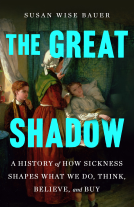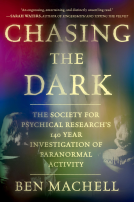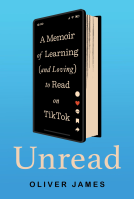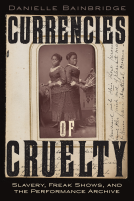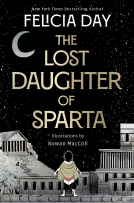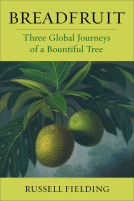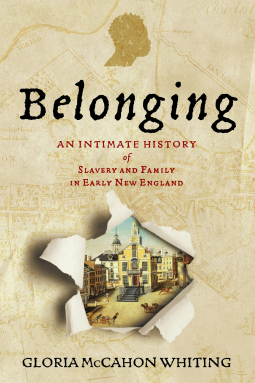
Belonging
An Intimate History of Slavery and Family in Early New England
by Gloria McCahon Whiting
This title was previously available on NetGalley and is now archived.
Send NetGalley books directly to your Kindle or Kindle app
1
To read on a Kindle or Kindle app, please add kindle@netgalley.com as an approved email address to receive files in your Amazon account. Click here for step-by-step instructions.
2
Also find your Kindle email address within your Amazon account, and enter it here.
Pub Date Aug 13 2024 | Archive Date Jun 21 2024
Talking about this book? Use #Belonging #NetGalley. More hashtag tips!
Description
As winter turned to spring in the year 1699, Sebastian and Jane embarked on a campaign of persuasion. The two wished to marry, and they sought the backing of their community in Boston. Nothing, however, could induce Jane’s enslaver to consent. Only after her death did Sebastian and Jane manage to wed, forming a long-lasting union even though husband and wife were not always able to live in the same household.
New England is often considered a cradle of liberty in American history, but this snippet of Jane and Sebastian’s story reminds us that it was also a cradle of slavery. From the earliest years of colonization, New Englanders bought and sold people, most of whom were of African descent. In Belonging, Gloria McCahon Whiting tells the region’s early history from the perspective of the people, like Jane and Sebastian, who belonged to others and who struggled to maintain a sense of belonging among their kin. Through a series of meticulously reconstructed family narratives, Whiting traces the contours of enslaved people’s intimate lives in early New England, where they often lived with those who bound them but apart from kin. Enslaved spouses rarely were able to cohabit; fathers and their offspring routinely were separated by inheritance practices; children could be removed from their mothers at an enslaver’s whim; and people in bondage had only partial control of their movement through the region, which made more difficult the task of maintaining distant relationships.
But Belonging does more than lay bare the obstacles to family stability for those in bondage. Whiting also charts Afro-New Englanders’ persistent demands for intimacy throughout the century and a half stretching from New England’s founding to the American Revolution. And she shows how the work of making and maintaining relationships influenced the region’s law, religion, society, and politics. Ultimately, the actions taken by people in bondage to fortify their families played a pivotal role in bringing about the collapse of slavery in New England’s most populous state, Massachusetts.
Gloria McCahon Whiting is E. Gordon Fox Assistant Professor of History at the University of Wisconsin–Madison.
Advance Praise
"Gloria McCahon Whiting’s extraordinary and deeply moving first book turns early American history inside out. Painstakingly researched and elegantly composed, Belonging recounts, in a thousand quiet, telling moments—the baptism, the marriage proposal, the death-bed wish—how the intimate lives of Black families, the shattering story of America, is threaded through the archives, each passionate attachment and every wrenching separation."
—Jill Lepore, author of These Truths: A History of the United States
"With Belonging, Gloria McCahon Whiting has made a crucial and deeply impactful contribution to our understanding of kinship, reproduction, and race in the early history of North America. By centering the lives of those enslaved in Massachusetts, she pushes on the boundaries of what we think we know, showing with clarity and certainty that Black people lived, labored, and loved in New England despite the violences and griefs they endured at the hands of enslavers. Belonging is required reading for those interested in slavery, the Black Atlantic world, the family, and gender and reproduction."
—Jennifer Morgan, author of Reckoning with Slavery: Gender, Kinship, and Capitalism in the Early Black Atlantic
"Built on stunning biographical portraits, Belonging is social history at its best, exploring issues of family formation, personal and community resistance, and the struggle for freedom in eastern Massachusetts in the 150 years leading up to the Revolution. Gloria McCahon Whiting reaches deep into the lives of the enslaved, covering startlingly new ground while at the same time providing us with sophisticated methods to access the records they left of their efforts to build and protect their families. It is a remarkable achievement that will force us to reconsider the ways we have looked at slavery and abolition."
—Richard J.M. Blackett, author of Samuel Ringgold Ward: A Life of Struggle
"Interweaving deep data-mining with vivid story-telling, Gloria McCahon Whiting brilliantly limns the intimate lives, sorrows, and activism of Afro-New Englanders who belonged to one another but also to enslavers. An innovative and very important book."
—Cornelia Hughes Dayton, co-author of Robert Love's Warnings: Searching for Strangers in Colonial Boston
Available Editions
| EDITION | Hardcover |
| ISBN | 9781512824490 |
| PRICE | $39.95 (USD) |
| PAGES | 360 |
Available on NetGalley
Average rating from 3 members
Featured Reviews
Belonging is a book about the history of family, specifically families of the enslaved and other Afro-New Englanders in Boston and eastern Massachusetts during the United States’ Colonial period. It is about both how family was expressed and how it was denied, and about white as well as Black New England, and how they interrelated.
The book is structured as a series of stories about different enslaved persons that the author’s research has identified, and using them as a frame to cover topics such as marriage, child-rearing, and sexual violence, usually elaborating on what is verifiably known about the people to tell a more complete story. I understand why the author chose this structure, namely that the systemic erasure or minimization of Black voices from the historical record means in many cases such a thing is necessary to tell any story at all. I think that this tends to work against its intended purpose, in that the clarity and emotion meant to be conveyed is undercut by the hedging about what is or is not supported and how.
It may be that I am not the audience for this sort of thing, being particularly interested in the history of historical reconstruction (ask me sometime about how I got 86ed from Mount Vernon), as I am the type of reader who consistently found the end notes of how the author made the choices about what to include in the text more interesting than the text. I also feel like I am harping on this point more than I naturally would in that I suspect it will be a target of criticism about the work, so I want to make this clear: it’s fine.
The best part of this book is the work that underpins it. This book arises out of a deep dive into court and newspaper records for the region, effectively starting with the author’s refusal to accept the reporting of the most available indices and thinking that there had to be more history about Afro-New Englanders contained in them, which an ab initio review, along with a lot of new indexing, proved that there was. This is cool. This is also promising for further work on the material, and further similar projects.
The above makes it a great addition to popular history on the topic, however, problems start with the author’s thesis. The book argues that the narrative of slavery was abolished in Massachusetts1 as a sort of top-down method of enslavers coming to their senses following the Revolutionary War, with the new state Constitution as the specific lever of emancipation is incorrect. Instead, the enslaved were the agents of their own freedom through a careful application of argument that used ‘family values,’ euphemistically and non-, to argue their case for freedom, which spread into the popular consciousness and then became the abolitionist reasoning as reflected in popular sentiment.
There is a core truth here, namely that it is wrong to discount the agency of the enslaved. It is notable how the racist tropes about white superiority got reused as part of abolition. But the evidence is just is not there, or at least I think that the brief sketch provided by the author in this book needs filling out in order to assert a singular importance.
But what bothers me so much about it is the unintended lesson in assimilation. The earlier comment about the euphemistic aspect of family values is pertinent. In essence, the argument is that the enslaved knew that the most effective arguments would be those that targeted the deepest set of beliefs around the family as core social, political, and economic unit, and in the way that was functionally incompatible with chattel slavery, and making a fulcrum of the dissonance to overturn the whole of the thing.
The beliefs are expressly patriarchal and Protestant. The former gets checked far later in the text than I felt it itching at me, but then suggests evidence that this was willful on the part of Afro-New Englanders. The later is remarked on in the context of the discussion of the practice of religion but not investigated. It is a curious observation, this sort of throwing under the bus mentality, particularly in the sense that I customarily hear it in defense of enslavers rather than lauding the enslaved. A book on slavery should be unsettling, but the implicit suggestion here that social gains are accomplished by embracing anti-liberalism is a different kind of disquieting. I suppose that in the face of oppression, any means necessary for freedom are justified, including oppression, but the point is that the book does not need this.
I wonder to what extent these are the perils of writing a popular history, as all of the weaknesses here arise out of a distrust of the importance and meaningfulness of the core work, which remains solid. I would rewrite this book as its end notes.
My thanks to the author, Gloria McCahon Whiting, for writing the book, and to University of Pennsylvania Press for making the ARC available to me.
Footnote perpetual for whenever slavery is said to end: it is never that straightforward ↩︎
"Belonging" by Gloria McCahon Whiting is an intimate analysis of New England slaves up until the American Revolution. The author relies on primary sources as much as possible, piecing together each life with impressive accuracy. We're first introduced to Dorcas, the first member of African descent to join the Puritan Church. Then there is Jane and Sebastian, two lovers who wished to be married against the wishes of Jane's mistress. There's Lydia, a white woman, and Thomas a freed black man, who are married two years before the General Assembly passes a law forbidding interracial marriage in 1705. Administrative racial labels vs societal perception trail their "passing" descendants for generations. Then we meet Sue, a woman who was sold as an infant, only to suffer the sale of her own children . Such cold-hearted "trampling upon their intimate lives" could drive anyone to murder, as is the case of Mark, Phoebe and Phillis in 1755.
I adore historical studies like this, because they are usually the most respectful and yet honest. "Enslaved spouses rarely were able to cohabit; children could be removed from their mothers at an enslaver’s whim..." No two stories of enslavement are ever the same. Slavery is often taught in a removed, statistic-heavy manner. It's true that numbers are important, but slavery was present in every facet of American life, not just the plantations. Slavery is emotional, financial, societal, religious and economical. It was in the Church, in Court, in the market, in the house next door. I was surprised to learn that Samuel Sewall, the regretful judge from the Salem witch trials, was adamantly anti-slavery. Slavery was and is an abhorrent institution, but you'll learn that it is also complex and deeply personal. Parts of this book will break your heart, but you'll be glad when it sticks with you.
 Reviewer 862825
Reviewer 862825
How do you study or research the lives that lived in slavery when the archives are silent? For Belonging: An Intimate History of Slavery and Family in Early New England Professor Gloria McCahon Whiting approached the issue by a deep reading of the legal and church records that are more prone to survive the ravages of time.
Belonging focuses on Massachusetts from the 1600s to the Revolutionary America. As the study is centered on slavery, it traces people of African descent as they were both enslaved or free. There are six chapters, each detailing the lives of one family, time period and key issues. For example chapter 1 narrates the life of a woman named Dorcas who was enslaved but found freedom through her devotion to faith in 17th century Massachusetts. Chapters move chronologically and are centered on key issues that developed from the lives of the individuals detailed, though this by no means that others did not have to deal with similar or the same issues.
McCahon Whiting is clear when making assumptions, much can be gleaned from the scraps that have survived, but the individual voice typically did not. The records that survived are almost all from the perspective of white witnesses. However the narrative continually shows the efforts made to maintain a family and relationships in the face of a system designed to break them apart. At many times it shows what we now would call activists testing limits and publicly addressing their wants needs and equitable interpretation of the law.
An important finding of this book is that slavery's ending in Massachusetts was less a top down decision, and instead a legal acceptance of what was already occurring on an individual basis.
Recommended to readers and researchers of early American studies or Black and African American history.
Readers who liked this book also liked:
Danielle Bainbridge
Arts & Photography, Multicultural Interest, Nonfiction (Adult)
Chris Condon & Jeffrey Alan Love
Comics, Graphic Novels, Manga, Horror, Sci Fi & Fantasy
